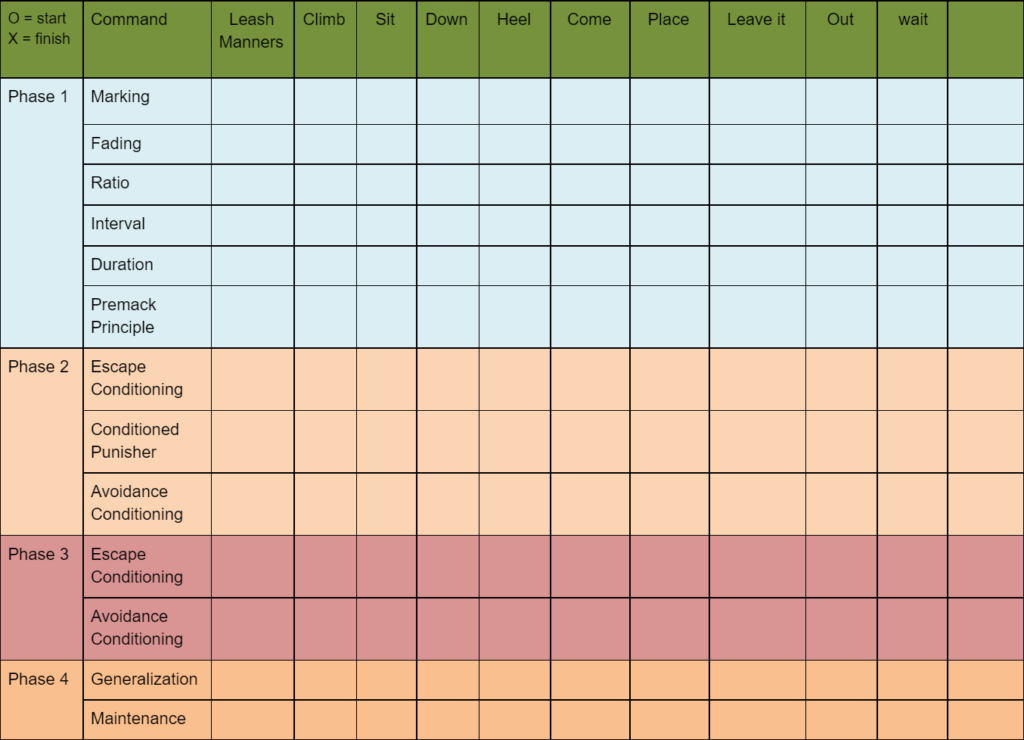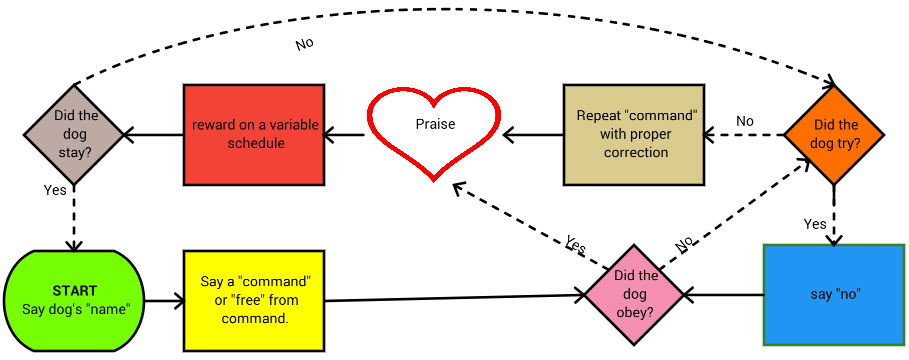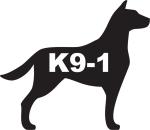Interval - The period of time between reinforcement.
- Objectives
- What is an interval schedule?
- fixed
- progressive
- variable
- What is easier when we teach ratio schedules first?
- The compound schedule
- How does it get us ready for duration schedules?
- What is an interval schedule?
Go over examples of how interval training is used in:
- Pet obedience
- Competition obedience
- Scent work
- Bite work


Behavior does need to be constant to receive the reward. Give an analogy.
Fixed Interval Schedule (FI)- Predictable period of time between reinforcement
FI-1 second (and CRF)
| Behavior | 1 | 2 | 3 | |||||||||||||||||||||
| Time | 0 | 1 | 2 | 3 | 4 | 5 | 6 | 7 | 0 | 1 | 2 | 3 | 4 | 5 | 6 | 7 | 0 | 1 | 2 | 3 | 4 | 5 | 6 | 7 |
| Marker | M | M | M | M | M | M | M | M | M | M | M | M | M | M | M | M | M | M | M | M | M | M | M | M |
| Reward | R | R | R | R | R | R | R | R | R | R | R | R | R | R | R | R | R | R | R | R | R | R | R | R |
Here we choose how long we will work on a single behavior, and we may prompt all that we want with the dog's "name" and the "command" anytime the dog needs prompting, and as long as the dog happens to be doing the behavior there will be a reward available after the marker on the schedule.

FI-2 seconds
| Behavior | 1 | 2 | 3 | |||||||||||||||||||||
| Time | 0 | 1 | 2 | 3 | 4 | 5 | 6 | 7 | 0 | 1 | 2 | 3 | 4 | 5 | 6 | 7 | 0 | 1 | 2 | 3 | 4 | 5 | 6 | 7 |
| Marker | M | M | M | M | M | M | M | M | M | M | M | M | ||||||||||||
| Reward | R | R | R | R | R | R | R | R | R | R | R | R |
Progressive Interval (PI)- Time between reinforcement progressively increases
| Behavior | 1 | 2 | 3 | ||||||||||||||||||||||||
| Time | 0 | 1 | 2 | 3 | 4 | 5 | 6 | 7 | 8 | 0 | 1 | 2 | 3 | 4 | 5 | 6 | 7 | 8 | 0 | 1 | 2 | 3 | 4 | 5 | 6 | 7 | 8 |
| Marker | M | M | M | M | M | M | M | M | M | M | |||||||||||||||||
| Reward | R | R | R | R | R | R | R | R | R | R |

Variable Interval (VI) - Unpredictable period of time between reinforcement
VI-3 seconds
| Behavior | 1 | 2 | 3 | |||||||||||||||||||||
| Time | 0 | 1 | 2 | 3 | 4 | 5 | 6 | 7 | 0 | 1 | 2 | 3 | 4 | 5 | 6 | 7 | 0 | 1 | 2 | 3 | 4 | 5 | 6 | 7 |
| Marker | M | M | M | M | M | M | M | M | M | |||||||||||||||
| Reward | R | R | R | R | R | R | R | R | R |
Variable Interval Schedules are easy to work with because you use your judgment when the dog needs the extra communication that they are doing the right thing.

COMPOUND SCHEDULE - A schedule in which two or more individual schedules are combined
Here we have a VI-3 and VR-2
| Behavior | 1 | 2 | 3 | |||||||||||||||||||||
| Time | 0 | 1 | 2 | 3 | 4 | 5 | 6 | 7 | 0 | 1 | 2 | 3 | 4 | 5 | 6 | 7 | 0 | 1 | 2 | 3 | 4 | 5 | 6 | 7 |
| Marker | M | M | M | M | M | M | M | M | M | |||||||||||||||
| Reward | R | R | R | R | R | R |
The big tip! Do not increase the interval schedule unless you have a high percentage of duration for the behavior between intervals.


Understanding intervals makes everything easier.

Protection training.




Responses